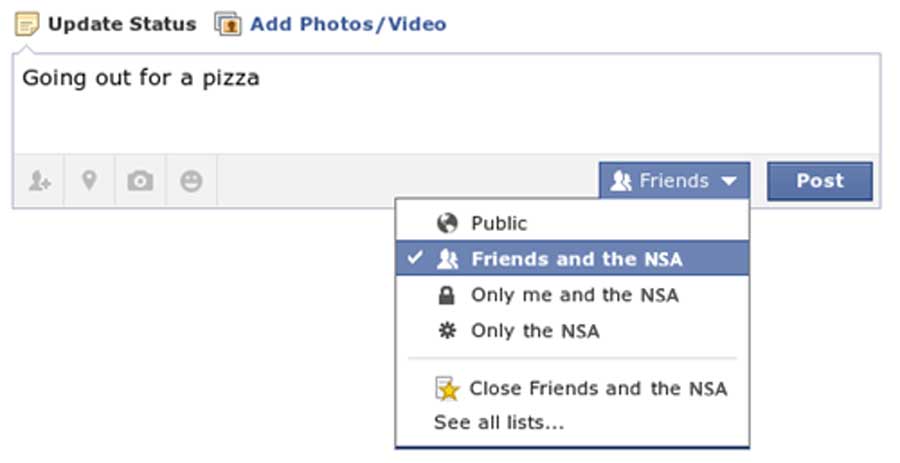Last week it was revealed that the NSA is data mining the call information of Verizon Business. This has set off a flood of coverage and has kindled an overdue debate about the trade-off between domestic surveillance and national security.
It remains to be seen how wide ranging the debate becomes. The Administration and some members of Congress maintain that the surveillance is legal. The length of the debate and whether anything changes will be determined by the court of public opinion, as often happens in a democracy (however imperfectly).
In a move to stoke public reaction, the technology community is starting to push back. Mozilla, makers of the popular Firefox browser, is hoping to take a page from the SOPA advocacy playbook and use their start page to solicit citizen petitions to www.stopwatching.us.
Google, Facebook and Microsoft have requested government permission to reveal some details of the classified government requests the companies have received for information. This could simply be a smart public relations move, since the request is likely to be denied. However, I’ve previously written on Google’s biannual Transparency report and how it gives citizens at least a glimpse into the rise of government requests for personally identifiable information. Microsoft released its first such report in March, and Facebook is reported to be considering such a move.
However, even if the request is granted these numbers can be misleading. Kevin Poulsen wrote a good piece in Wired explaining the limitations of how the Justice Department reports the number of classified requests for data. The court order to Verizon Business would represent one single request on the annual report, despite involving data on millions of citizen interactions.
On this site and elsewhere I’ve written that a more open discussion is needed about how consumer activities online are tracked. While it’s even more worrisome when the government does the tracking, I feel the same way here. This debate needs to be dragged out into the light as much as possible, and let Americans decide what trade-offs are justified. After all, this isn’t like earlier wars that had a clear end date. There will always be forces looking to harm America. We’re trying to define the “new normal,” and right now the government is doing it alone.
Technology firms can chafe under government requests, and they can release some information. But they can’t protect the privacy of American citizens. Google CEO Eric Schmidt made this point very plainly in this 2008 interview.
